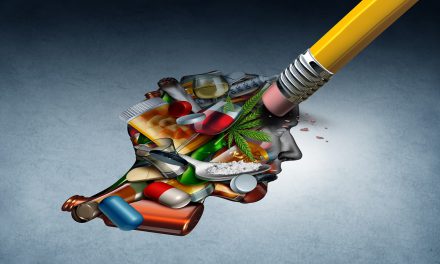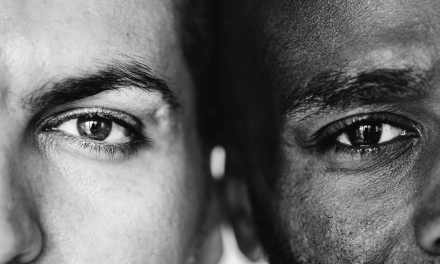Discussions abound of gender norms in all forms of media, but information and opinion often clash. One phrase entering common vernacular is “toxic masculinity,” a term which has sparked considerable vitriol for the implications it has about the effects of some masculine gender norms — in other words, expectations men face about their behaviors and lifestyles because they are men. While femininity and masculinity are neither inherently good nor bad, ethical nor unethical, toxic masculinity describes a set of societal expectations about men that are explicitly damaging. Cambridge dictionary defines the term as “ideas about the way that men should behave that are seen as harmful, for example the idea that men should not cry or admit weakness.”
What is toxic masculinity?
“‘Big boys don’t cry. Suck it up. Shut up and rub some dirt on it. Stop crying before I give you something to cry about.’ These are just a few of the phrases that contribute to a disease in our society, and more specifically in our men,” said Eldra Jackson at the beginning of his TED Talk about toxic masculinity. These phrases encompass some of toxic masculinity’s ideas about how men should act, such as living up to a romanticized image of strength and stoicism, no matter the harm to the man or the people around him.
“I have been told to ‘man up’ my whole life,” said Russell Robinson, a 43-year-old father from Kansas City, Missouri. “Being the oldest male in a single mother household, I was expected not to show any emotions. When emotions did come out, they were met with a variation of ‘I’ll give you something to cry about.’”
Because Robinson wasn’t able to show emotions growing up – especially sadness, embarrassment or betrayal – he bottled them up until they inevitably exploded into angry outbursts. For Robinson and many others, men never cried, buckled under pressure or showed vulnerability.
A paradigm shift for Robinson came with the birth of his daughter. Knowing he had to be a positive role model for her meant he had to demonstrate it was okay to feel and express a wide range of emotions. “We are the products of our parents and how they nurture our feelings and validate our emotions,” he said. “I apologize to her when I’m wrong and I listen to her opinion when she has an idea or suggestion. I want to give her the foundation of a loving caring male in her life.”
Concepts like strength, fortitude and physical prowess are commonly associated with masculinity. By themselves, these concepts are not inherently problematic or damaging. Masculinity becomes toxic when having authority over others becomes central to a man’s identity, and when the pressure to embody these ideals is so great that there is no room for vulnerability or other traits associated with femininity, even when those traits are natural or healthy.
Refusing to ask for help, to admit a lack of knowledge, to offer or ask for emotional support, to take proper precautions to avoid or take care of an injury, or to apologize, among other behaviors, are often a consequence of being afraid to seem weak. Such perceived weakness is grounds for bullying even from a young age, when boys (and girls) police and reinforce stereotypically masculine behavior in one another with insults like “girly” or “gay.” The phrase “like a girl” remains a commonplace insult among children across America.
When displays of behavior that fall outside the masculine stereotype are met with derision and condemnation, men fear and avoid engaging in such behavior no matter how natural or healthy it is and learn to replicate that derision at other men who act outside of the boundaries of masculinity. When jockeying for social status in school, it isn’t enough for boys to only avoid “girly” behavior; violence and aggression can seem like necessary tools to establish themselves to their peers as sufficiently masculine men. Eventually, men are left with no choice but to “bottle it up” or risk certain ridicule, often from their own friends and loved ones.
“Growing up, ‘feminine’ actions were also ‘gay’ actions,” said Matthew Volpert, a 37-year-old father from Shawnee County, Kansas. “Even things as simple as caring about animals could be seen as a weakness and encouraged taunting from the other boys, who all wanted to be the toughest guy on the block.”
Fortunately for Volpert, his grandfather served as a positive masculine influence who believed in showing love and emotion. “I grew up defining strength separately from masculinity, and that’s made all the difference,” he said. “I’ve seen many peers who have to outwardly display traditionally masculine traits because they have no sense of self or inner strength, and I see that in a lot of the toxic masculinity of today. Without knowing yourself, you have to fall back to what society tells you you should be, and these people tend to follow others in the same boat.”
Why is it a problem?
In a society ruled by the maxims of toxic masculinity, anger is one of the only acceptable emotions men can show. Enforcing this maladaptive repression in men, like lashing out by venting their emotions with displays of anger and using violence to assert authority, has serious consequences for the people close to them.
In some cases this behavior turns into violent abuse. The most recent edition of the Violence Policy Center’s study on murder-suicides in the United States, which are most often committed by couples, found that more than 90% of the perpetrators were male. In murder-suicides with multiple victims, 67% involve “a male murderer and three or more victims were perpetrated by family annihilators.” In other words, when the perceived weakness of seeking help like therapy combines with the trained response to vent emotion through violence and anger, those closest to men are sometimes caught in cycles of abuse that can culminate in tragedy.
When these violent impulses are directed inward rather than outward, the consequences are no less lethal. Although women attempt suicide more often than men, men die by suicide nearly four times as often as women. This disparity is a reflection of the methods commonly used in suicide attempts. Men are more likely to use firearms and other immediately lethal methods in their attempts than women are, which results in more fatal suicides.
Some may suggest that differing rates of suicide by firearm may be related to differing rates of firearm ownership between men and women, as nearly twice as many men than women report owning a gun. (This disparity is also connected to gender norms; while personal protection is the primary reason most gun owners cite for why they own a gun, some studies indicate that a subset of men may turn to gun ownership as a means of reasserting their sense of power in tough times, since guns are a potent symbol of strength and authority.) However, nearly as many women as men live in a household with a gun, so access to a firearm does not explain the so-called gender paradox of suicide.
Even in men who are not driven to such violent extremes, emotional repression as simple as not being allowed to cry is a detriment. Crying is healthy because it releases stress and helps the mind and body recover from distress and anxiety. Without that natural means of recovering from stress, not only is mental health negatively impacted — the immune system and heart health also suffer. The longer someone is chronically stressed, the worse the damage becomes, and since men are less likely to seek therapy than women (and men of color face extra barriers even after making the decision to get help), that stress may never be properly managed.
The effects of such long-term stress on the immune system is just one of many reasons why men’s life expectancy is lower than women’s. Although social views around gender roles are changing, toxic masculinity remains a real threat to men’s health. In 2019, the Pan American Health Organization (PAHO) released a report titled “1 in 5 men will not reach the age of 50 in the Americas, due to issues relating to toxic masculinity.” Engaging in risky “masculine” behaviors, choosing dangerous jobs and smoking and drinking at higher rates than women all contribute to men’s lower life expectancy.
Risky behaviors are especially prevalent in men between the ages of 15 to 35, when “intrasexual competition is the strongest.” This pattern is common enough that it was named Young Male Syndrome (YMS) and is a key factor in why men are more likely to die in accidents. The American Psychological Association Dictionary of Psychology entry for YMS reads:
“The propensity of males in their mid- to late teens and twenties, and particularly those who are unmarried and unemployed, to engage in violent altercations to resolve seemingly trivial matters, to ‘save face,’ to harm a rival, or otherwise to enhance their social status. Young men in this age group are also more likely to participate in high-risk behaviors, such as driving at high speeds or taking illicit drugs.”
The behaviors described in this definition encompass the consequences of toxic masculinity: Uncompromising pressure to gain respect by maintaining a masculine reputation of authority and strength drives men to harmful behaviors. The more a man’s masculinity is threatened, for example, by lacking a job or a family to head, the more likely he is to turn to risk, violence or substances to cope, because healthy outlets of handling personal crises, like therapy or sharing emotions with friends, are not permissible under the maxims of toxic masculinity.
To compound the consequences of those risky tendencies, men are also much less likely to go to the doctor than women. Attitudes that encourage ignoring anything associated with weakness, such as pain or injury, have powerful influence on patient behavior. One study found that “men with strong masculinity beliefs are half as likely as men with more moderate masculinity beliefs to receive preventive care.” Teaching men from a young age to simply “toughen up” instead of seeking help when appropriate reduces the likelihood that they will pursue appropriate avenues of care. Toxic masculinity is the driving force behind all of these habits, meaning the same men who succumb to the pressure of reaffirming their masculinity through risky and dangerous activities are the ones who will likely balk at visiting a doctor when those activities harm them.
“I’ve seen first hand how a lack of a guiding influence can contribute to grappling with masculinity and self-worth,” said Volpert. “Because of this, I talk to my son about the strength he shows every day. Gentleness is a strength. Kindness is a strength. Putting others down, bullying, bottling emotions – these are all the refuge of weak men.”
To combat societal pressures of toxic masculinity, fathers like Volpert and Robinson are redefining what it means to be a man. Whether Volpert’s children are masculine or feminine is irrelevant; he instead helps them focus on traits that bring value to society such as respect, dignity and compassion, as well as understanding right from wrong.
For Robinson, therapy has offered a much-needed release from these pressures and allowed him to continue demonstrating emotional strength and vulnerability to his daughter and others. “Toxic masculinity isn’t just about fathers and sons,” he said. “It’s about the culture that has embraced the ‘Alpha’ male. Luckily, I found a wonderful therapist who has helped me realize what emotions are and how to process them. Something as simple as saying, ‘That hurt my feelings’ is no longer scary for me to say.”
Learn more about toxic masculinity: https://www.medicalnewstoday.com/articles/toxic-masculinity








